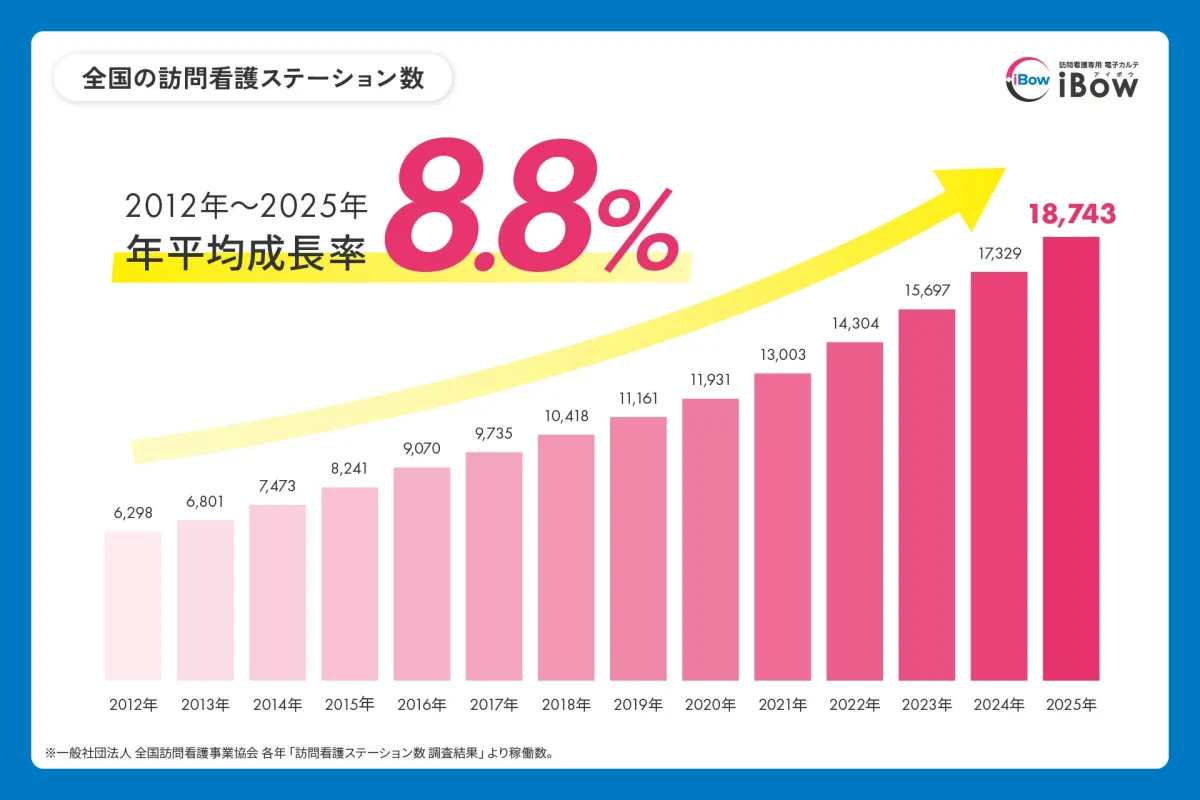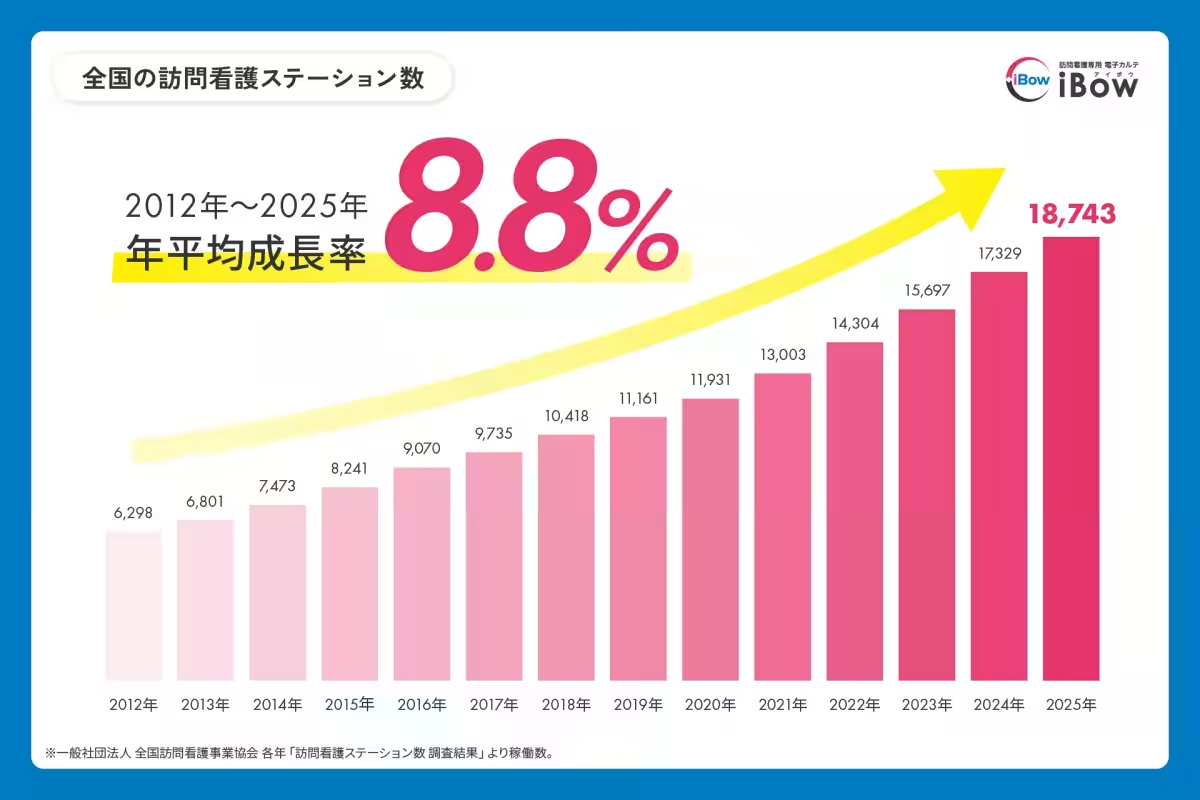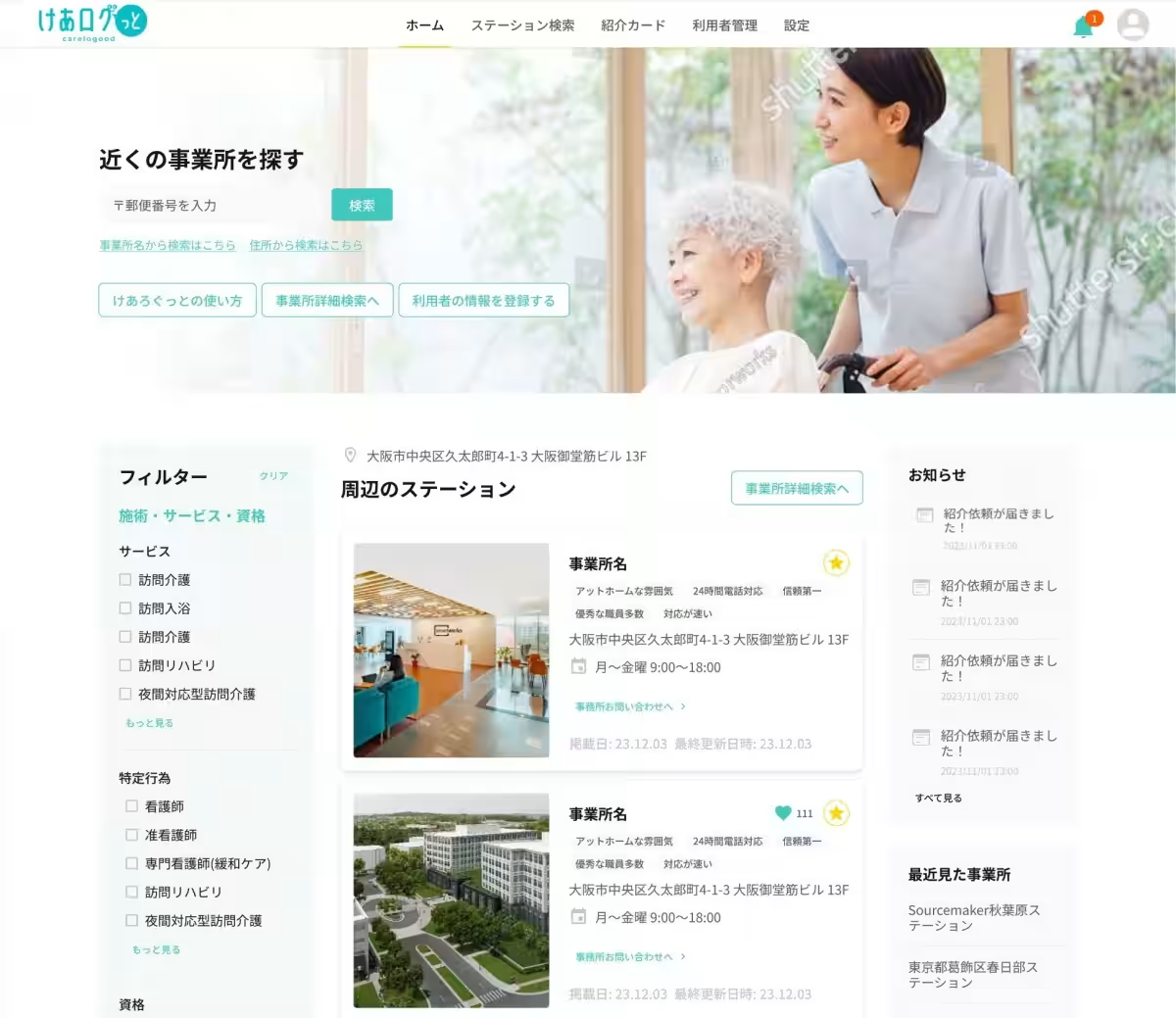

Exploring the Growth of Home Care: Japan's Home Nursing Stations Reach Historic Numbers in 2025
Exploring the Growth of Home Care
In a recent report, the Japan Home Nursing Business Association revealed that as of April 1, 2025, the number of operating home nursing stations in Japan has surged to an impressive 18,743, marking a year-on-year increase of 1,414 stations, or an impressive growth rate of 8.8%. This trend reflects the changing demographics in Japan, where the aging population continues to emphasize the critical role of home healthcare services.
The Recent Statistics
According to the new research findings published on June 13, 2025, Japan has witnessed a significant increase in the number of home nursing stations, which has seen a consistent upward trend over the last 15 years. This steady growth is largely attributed to the implementation of the regional comprehensive care system mandated by the revision of the Long-Term Care Insurance Act. Additionally, the 2012 major overhaul of reimbursement for home nursing, which included a “double remuneration reform,” has contributed to nearly tripling the number of home nursing stations, reflecting a rising industry trend.
In 2025, the past year marked a historic high in newly opened home nursing stations, totaling 2,487, surpassing previous records and indicating a robust demand for home medical services as the baby boomer generation transitions into their later years. The ongoing increase in the complexity of healthcare and nursing care needs underscores the importance of home nursing services.
Challenges Faced in the Sector
Despite the positive growth trends, the sector is also facing challenges. The report noted a troubling rise in the number of home nursing stations being discontinued or temporarily halted, with 886 stations closed and 355 services paused this year — both record numbers. The reasons behind these closures are concerning, with 22.7% citing difficulties in securing qualified staff, and 14.9% reporting insufficient users making it hard to maintain operations.
Moreover, the challenges faced by nursing stations include not just a shrinking pool of users but also the critical shortage of qualified nurses, making it increasingly difficult for these facilities to remain viable. These statistics reflect a paradox where, despite the growing demand for home nursing, many stations are unable to keep up due to both operational and personnel challenges.
The Importance of Home Nursing Services
The expansion of home nursing stations is a clear indicator of the evolving healthcare landscape in Japan as it grapples with an aging society. Predictions suggest that the demand for home healthcare services will only continue to rise as we move towards 2040. Nevertheless, many home nursing facilities face operational issues that need addressing to ensure sustainability in the market.
To enhance human resource availability, there is a strong need for creating an environment where nursing professionals can focus on their care work. This includes fostering a conducive work environment and implementing appropriate performance evaluations. Encouraging collaborative team-based approaches that adapt to local healthcare conditions could also help secure a steady stream of users.
eWeLL’s Role in Shaping Future Healthcare Delivery
amids these challenges, eWeLL Co., Ltd. is positioning itself as a pivotal player in the home healthcare ecosystem. Their electronic medical record service, iBow, and additional support offerings are designed to address current difficulties while improving operational efficiency in home nursing stations across Japan. By providing comprehensive services like the iBow business management service and e-Campus training programs, eWeLL aims to support the growth potential of home nursing stations—ultimately enhancing patient care outcomes.
The insights from the Japan Home Nursing Business Association indicate both an exciting opportunity and a call to action for all stakeholders in the healthcare system. The successful adaptation to these trends will not just define the future of home nursing in Japan, but also ensure that every elder citizen receives compassionate and quality care in their homes.




Topics Health)










【About Using Articles】
You can freely use the title and article content by linking to the page where the article is posted.
※ Images cannot be used.
【About Links】
Links are free to use.